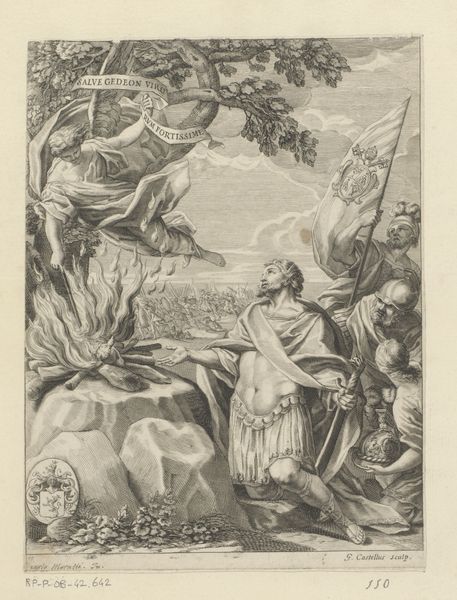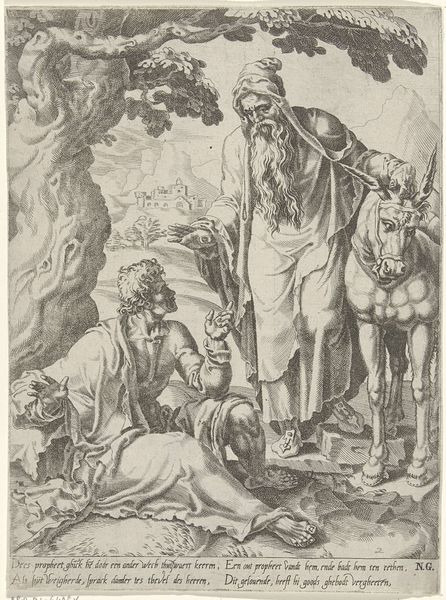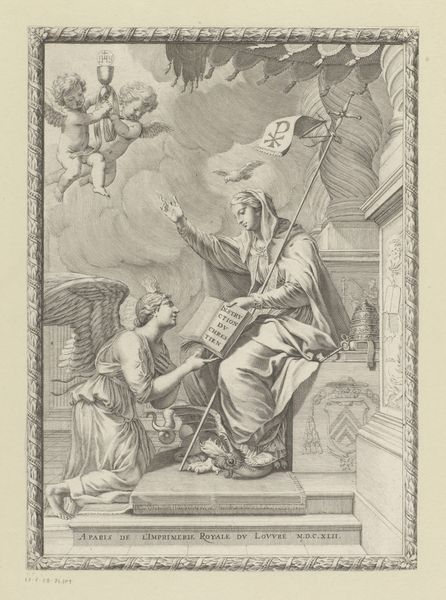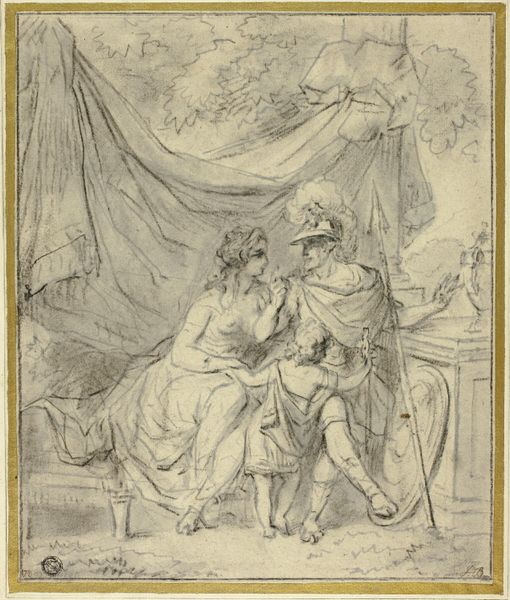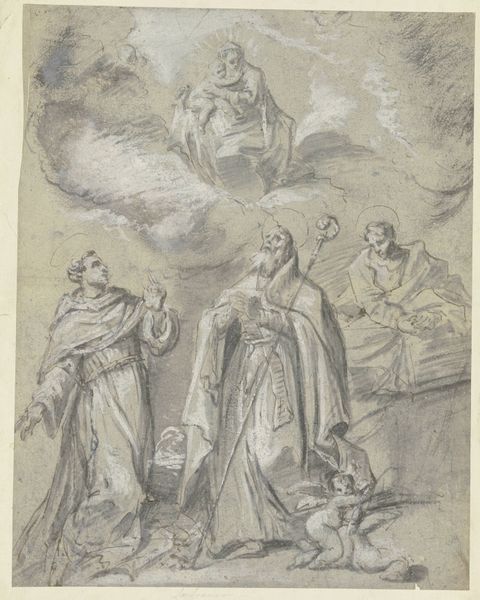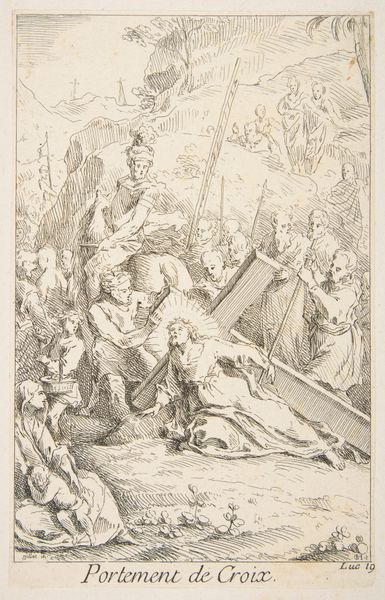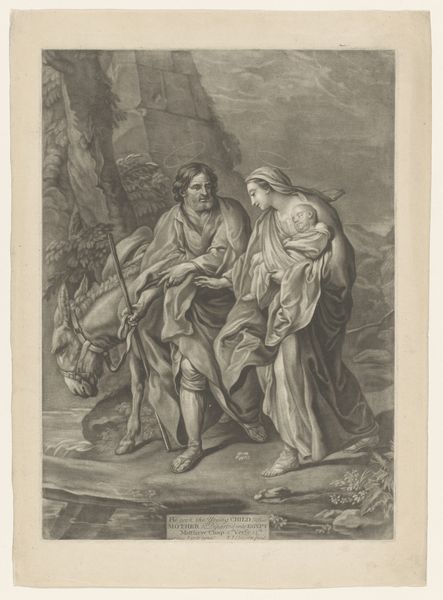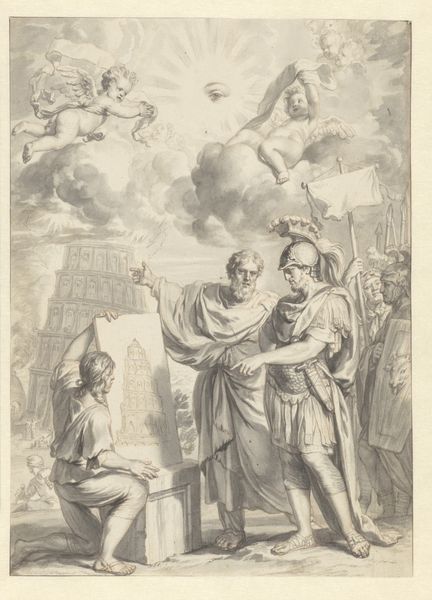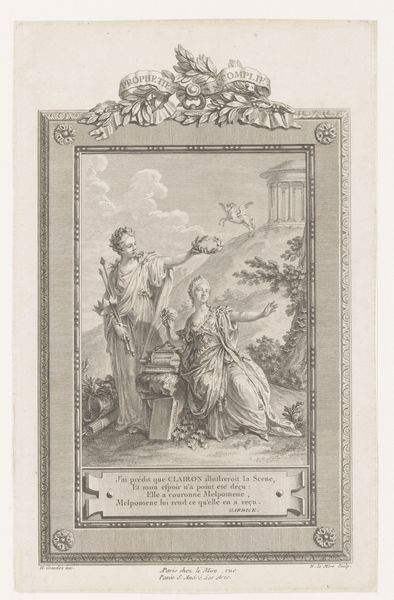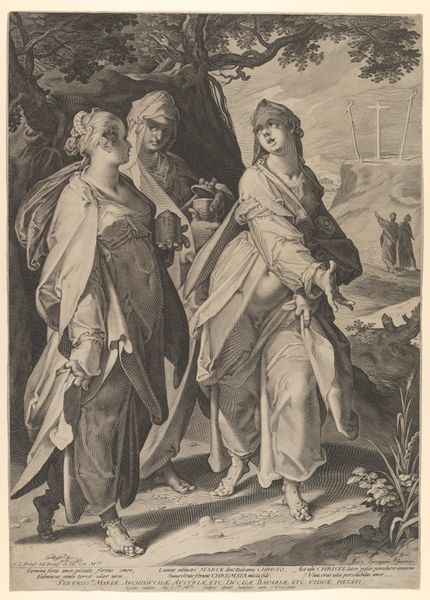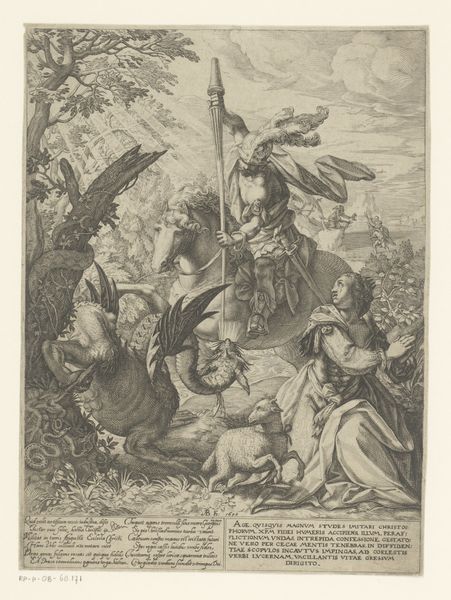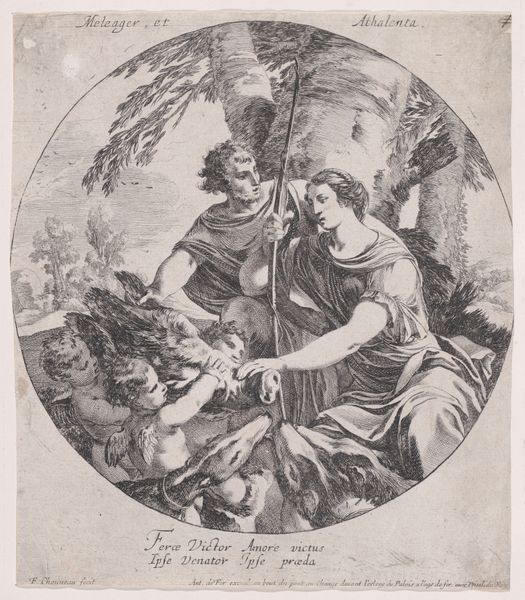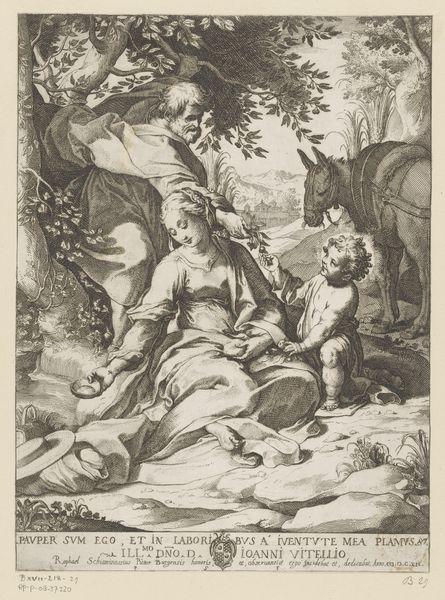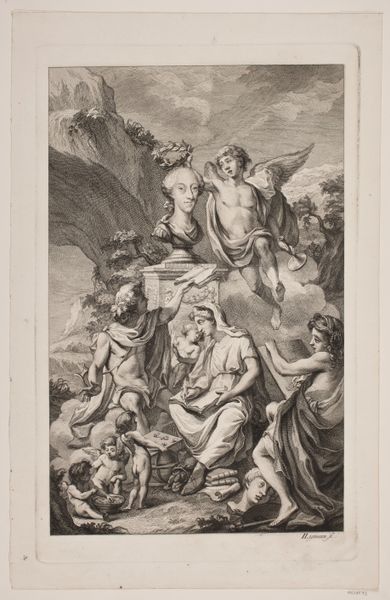
Behangsel, paneel, met voorstelling uit "Les Amours de Psyche": Psyche op in rotsen uitgehouwen trap, in grisailletinten after 1816
0:00
0:00
drawing, charcoal
#
drawing
#
neoclacissism
#
landscape
#
charcoal drawing
#
figuration
#
oil painting
#
watercolour illustration
#
charcoal
#
history-painting
Dimensions: height 180.5 cm, width 107.5 cm, height 191 cm, width 118 cm
Copyright: Rijks Museum: Open Domain
Curator: Before us, we have an intriguing artwork created after 1816 by Joseph Dufour. It's a panel, originally designed as "Behangsel", which translates to wallpaper. The work portrays a scene from "Les Amours de Psyché," depicting Psyche on a rock-cut staircase, rendered in grayscales. What are your initial impressions? Editor: The muted palette immediately strikes me; the careful gradations of grey create a powerful illusion of depth, really drawing the eye across the landscape. I’m intrigued by the way the artist utilizes shading to define form. It feels quite classical in its execution, but it does have an arresting quality. Curator: Absolutely. This work falls squarely within the Neoclassical movement, deeply inspired by antiquity, of course, but what's especially fascinating is its placement within a domestic space, blurring the boundaries between high art and everyday life, almost making this scene of classical love part of the home. That intersection, the democratization of classical narratives, seems quite deliberate. It creates this dialogue within the emerging middle class who were engaging with narratives of power, of beauty, of morality and identity, of their own sense of place. Editor: Yes, and the composition further reinforces that balance. Look at how the figures are arranged—Psyche is grounded on the left, almost as though on the verge of moving across our space, her gaze focused downward while a patriarchal figure leads her, grounding the classical within the viewer's reality, and note the subtle tension created by the almost monochrome palette, disrupted only by what looks like a gilt frame, bringing attention to this painting’s artificiality. There are few details that don’t suggest a controlled arrangement of masses in order to explore light and shape. Curator: This panel, I believe, also highlights the performative aspect of identity. Psyche, and her tale as rendered here, functions as a mirror reflecting aspirations for virtue and grace within the domestic sphere. What Dufour offers is a vision where mythology is not separate but internalized. Editor: Indeed, the psychological complexity—even in grayscale—offers much for us to appreciate and examine. And the composition achieves a marvelous balance, juxtaposing both classical narrative and form. Curator: A wonderful exploration into narrative, aesthetics, and the socio-political context of this piece, thank you. Editor: It was a pleasure. This offers such clarity in form while posing very profound cultural questions.
Comments
No comments
Be the first to comment and join the conversation on the ultimate creative platform.
